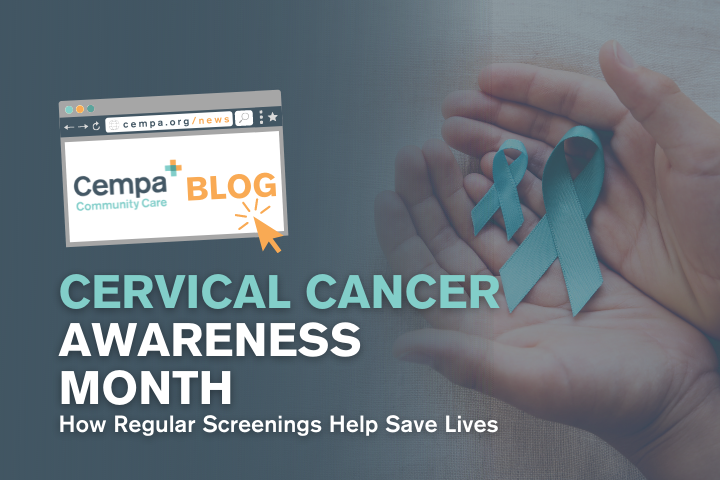Years ago, cervical cancer was the leading cause of death among women in the United States. But while it still occurs today, it’s much more preventable and treatable than ever before.
In fact, since the 1970s, cases of cervical cancer — and deaths due to cervical cancer — have decreased dramatically.
That’s because medical providers today are armed with tools, including regular Pap tests, that allow them to diagnose cervical cancer earlier, in its most treatable stages. And since the early 2000s, it’s also been possible to be vaccinated against human papillomavirus, or HPV, which is the most common cause of cervical cancer.
What Cervical Cancer Is & How to Prevent It
The American Cancer Society estimates that 14,100 new cases of cervical cancer will be diagnosed this year, including more than 300 in Tennessee alone.
Cervical cancer is a type of cancer that develops in the cervix, which is the lower end of the uterus. Most cases of cervical cancer are caused by HPV, which is spread through skin-to-skin contact, including vaginal, anal, and oral sex.
HPV infection is incredibly common — more than 80 percent of people who are sexually active will have HPV at some point in their lives. In most cases, the infection clears on its own, without causing harm. But in some cases, infection lingers, which can result in precancerous changes to the cervix.
So, what can you do to protect your cervical health? Talk with your medical provider about when you should be screened for cervical cancer and how often. In addition to regular screenings, it’s also important to keep an eye on your health and have any unusual symptoms, such as abnormal vaginal bleeding or discharge, checked out.
You can also limit your risk of developing cervical cancer by using condoms during sex. If you’re younger than age 26, talk with your medical provider about the HPV vaccine, which reduces your chances of infection with the strains of HPV tied to cancer.
How We Can Help
Cempa Community Care is proud to offer essential sexual health services and screenings, including Pap smears.
“Getting a Pap smear frequently and before developing symptoms detects HPV and other issues sooner before they develop into cancer,” says Melissa Stuntz, NP-C, Nurse Practitioner Lead at Cempa. “Sometimes we also find other conditions through these routine exams that we can then treat.”
How frequently you should undergo a Pap smear will depend on your overall health and cervical cancer risk factors. Individuals at average risk of developing cervical cancer can receive a cervical cancer screening every two years through Cempa’s primary care services. Those with enhanced risk, such as those who have HIV, need more frequent screening.
In addition to cervical cancer screenings, Cempa medical providers also treat illnesses and offer guidance and education related to health issues faced by those with internal genital organs — all within a comfortable and caring environment.
“We offer a safe space to provide compassionate nonjudgmental care for individuals to get pap smears, as well as STI and HPV testing,” Stuntz says. “We do thorough sexual health histories on our clients so that we can provide them with the most comprehensive education, testing, and treatment.”
Offering clients a safe space is a key part of the Cempa mission.
“Often our patients are embarrassed to ask questions in other settings,” Stuntz says. “In our clinic, clients are more at ease and feel more comfortable asking questions they may not ask other providers, and that is due to the safe, judgment-free environment we have created.”
The medical team at Cempa can also prescribe birth control and hormone replacement medications. These medications and others can be obtained through the Cempa Community Pharmacy.







